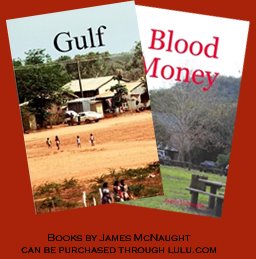(The view expressed in this blog are my own and should not be taken as inspired in any way.)
Would you like to read James McNaught’s novel Sinking Sand”? click here: Sinking Sand
1 Samuel 22:6–19, “When Saul heard that David was discovered, and the men that were with him, (now Saul abode in Gibeah under a tree in Ramah, having his spear in his hand, and all his servants were standing about him;) Then Saul said unto his servants that stood about him, Hear now, ye Benjamites; will the son of Jesse give every one of you fields and vineyards, and make you all captains of thousands, and captains of hundreds; That all of you have conspired against me, and there is none that sheweth me that my son hath made a league with the son of Jesse, and there is none of you that is sorry for me, or sheweth unto me that my son hath stirred up my servant against me, to lie in wait, as at this day? Then answered Doeg the Edomite, which was set over the servants of Saul, and said, I saw the son of Jesse coming to Nob, to Ahimelech the son of Ahitub. And he enquired of the LORD for him, and gave him victuals, and gave him the sword of Goliath the Philistine. Then the king sent to call Ahimelech the priest, the son of Ahitub, and all his father’s house, the priests that were in Nob: and they came all of them to the king. And Saul said, Hear now, thou son of Ahitub. And he answered, Here I am, my lord. And Saul said unto him, Why have ye conspired against me, thou and the son of Jesse, in that thou hast given him bread, and a sword, and hast enquired of God for him, that he should rise against me, to lie in wait, as at this day? Then Ahimelech answered the king, and said, And who is so faithful among all thy servants as David, which is the king’s son in law, and goeth at thy bidding, and is honourable in thine house? Did I then begin to enquire of God for him? be it far from me: let not the king impute any thing unto his servant, nor to all the house of my father: for thy servant knew nothing of all this, less or more. And the king said, Thou shalt surely die, Ahimelech, thou, and all thy father’s house. And the king said unto the footmen that stood about him, Turn, and slay the priests of the LORD; because their hand also is with David, and because they knew when he fled, and did not shew it to me. But the servants of the king would not put forth their hand to fall upon the priests of the LORD. And the king said to Doeg, Turn thou, and fall upon the priests. And Doeg the Edomite turned, and he fell upon the priests, and slew on that day fourscore and five persons that did wear a linen ephod. And Nob, the city of the priests, smote he with the edge of the sword, both men and women, children and sucklings, and oxen, and asses, and sheep, with the edge of the sword.”
Saul heard that David had been at Adullam and told his servants that David came from a different tribe and wouldn’t do anything for the men from Benjamin. After all, the rest of the Israelis had tried to destroy Benjamin earlier. He played on their fears so that they would support him as the king. Then Saul blamed his men for being on David’s side because no one told him that Jonathan and David were friends. Of course, it was quite obvious to everyone that they were friends and everyone assumed that Saul would know. However, Doeg, who wasn’t even an Israeli, was looking to get some favour with the king and he told Saul that David got Goliath’s sword from Ahimelech the priest. Saul was still paranoid and affected by the evil spirit that came to him when he disobeyed the Lord. He called for the priest and asked them why they had helped David. The priest didn’t even know that there was any problem between David and Saul. As far as he knew, David was Saul’s most loyal soldier and had done more for Saul and the kingdom than any other man. Saul became very angry and told his men to execute the entire family of priests for helping David. All Saul’s soldiers were afraid to kill the priests because they were afraid of the Lord and His holiness. Doeg, however, was a foreigner and didn’t even care about the Lord or his ways so he embarked on a massive pogrom and executed the entire priestly clan including their wives and children.
